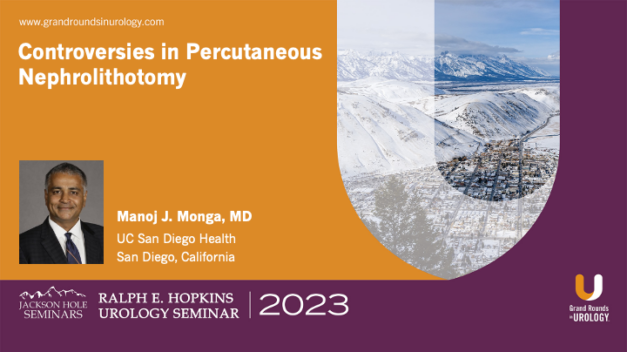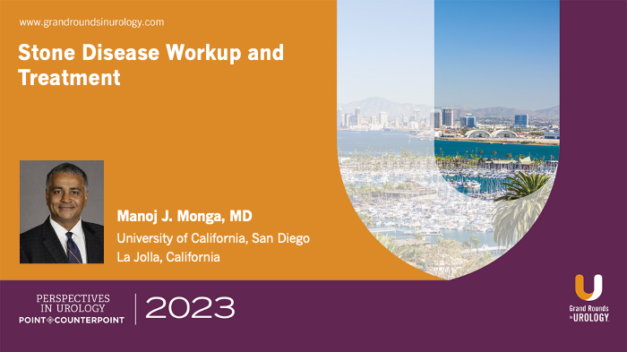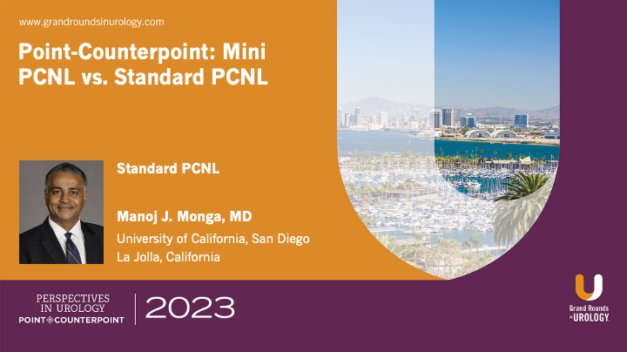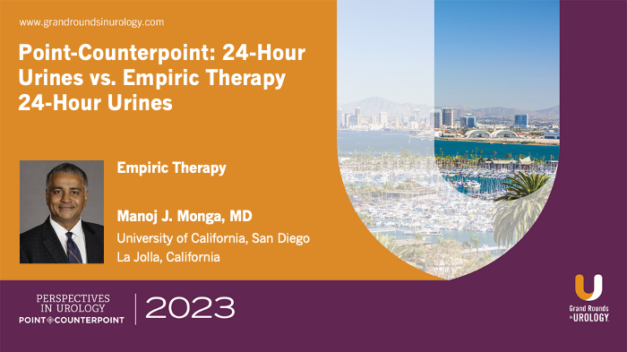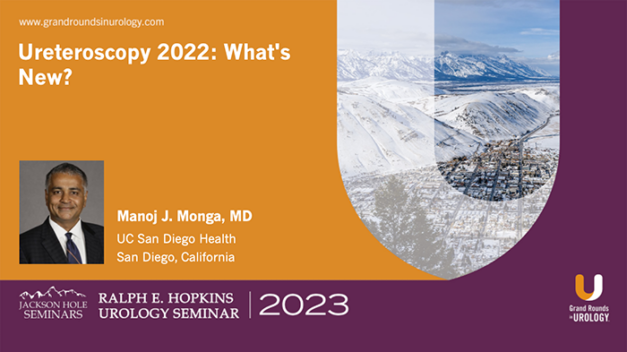Controversies in Percutaneous Nephrolithotomy
Manoj J. Monga, MD, FACS examines the indications for PCNL, emphasizing the criteria that influence the decision to opt for this invasive treatment. He highlights differing opinions on patient selection and the importance of individualized treatment plans.
Dr. Monga focuses on the technical aspects of PCNL and various approaches and techniques. He reviews the debate over the optimal access points, upper pole versus lower pole entry, and the risks and benefits of miniaturized versus standard tracts. He analyzes outcomes related to stone clearance rates, complications, and recovery times. Dr. Monga further explores the controversies in postoperative management, particularly the use of nephrostomy tubes versus tubeless procedures.
Emerging technologies and innovations in PCNL are also a key part of this presentation. Advancements in imaging techniques, new instruments, and their potential to enhance the safety and effectiveness of the procedure are examined, as well as the need for ongoing research.
Read More
